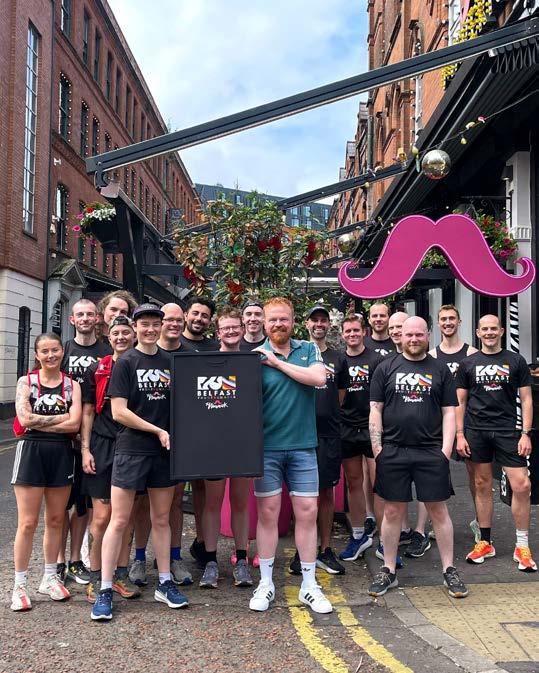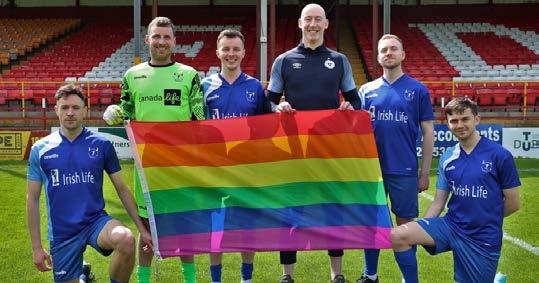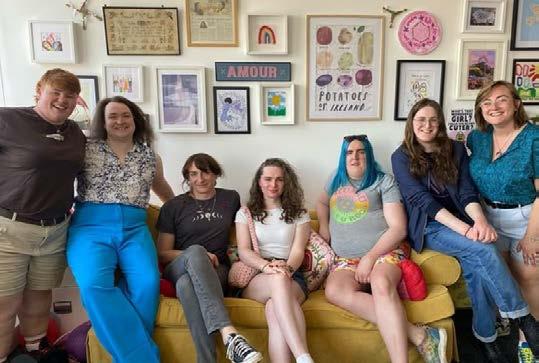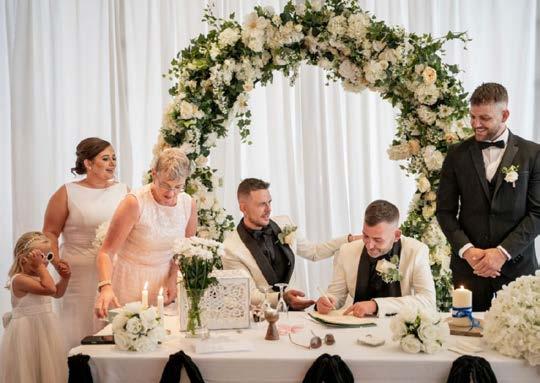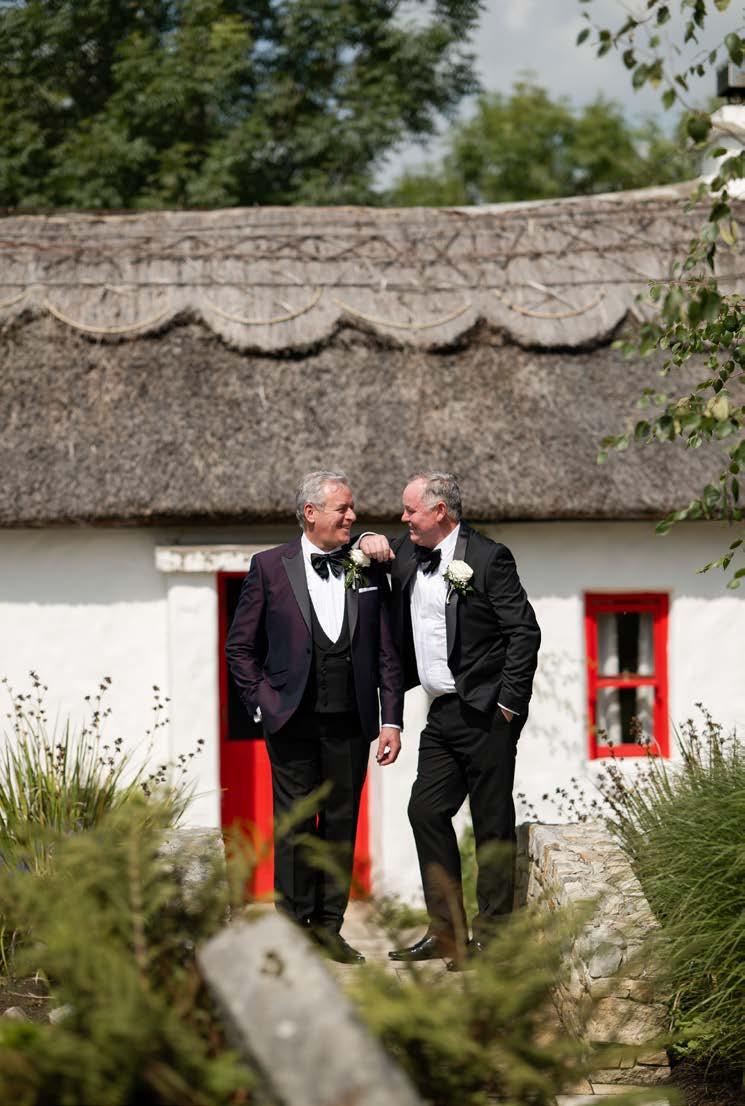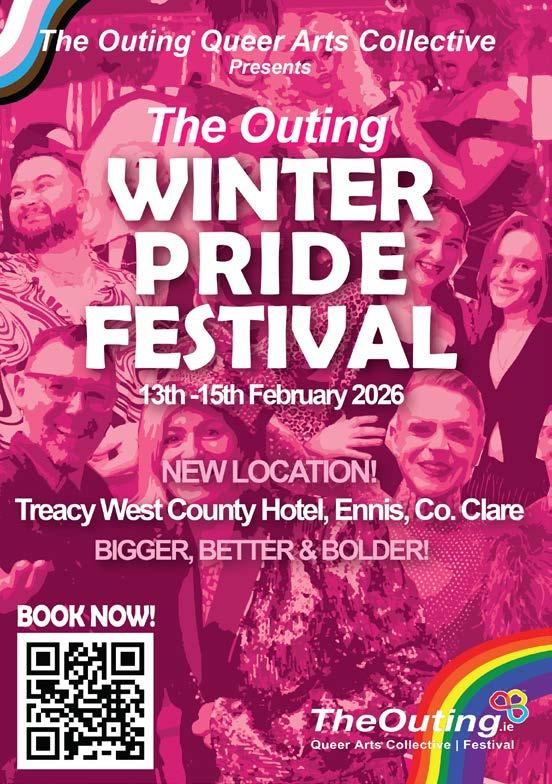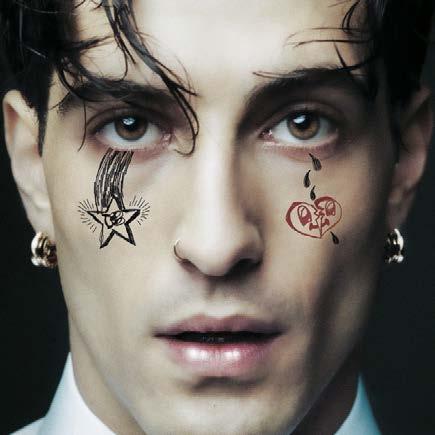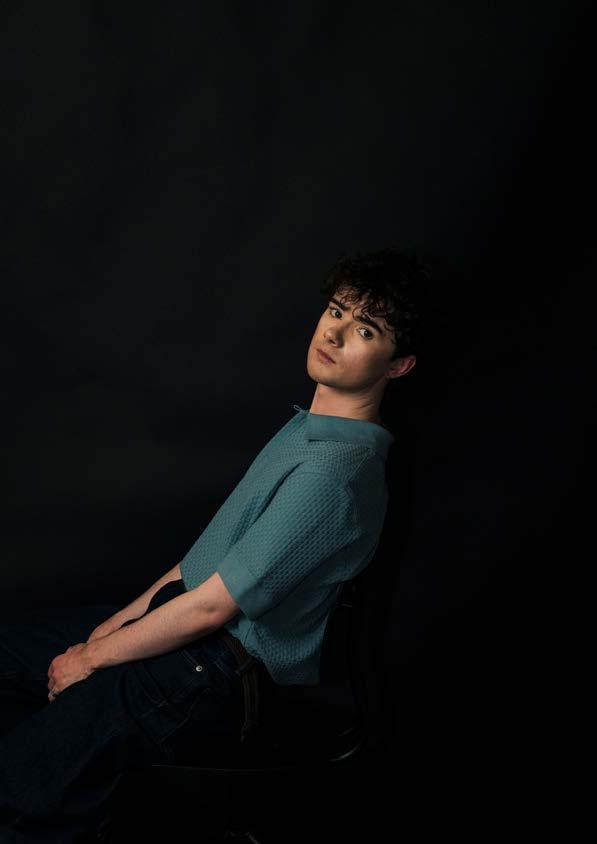
4 minute read
An Attack on One is an Attack on All
from GNI ISSUE 70
by GNI MAG
Living in Northern Ireland has always been challenging for LGBTQIA+ communities. Between negative experiences in school, hate crime in wider society, misinformation in politics and the media, discrimination in the workplace and, until recently, the denial of our right to marry who we love, LGBTQIA+ communities are well used to the strife and adversity of simply living in Northern Ireland as ourselves.
This year, we have seen the target firmly move to the back of transgender communities. Public discourse has become inflamed around issues that affect a tiny minority within our society, a minority even within our wider LGBTQIA+ community, with grave consequences for the individuals at the heart of it. Trans people in Northern Ireland are seeing their rights being rolled back - first, the ability of young people to access the care that they need, when they need it, quickly moving onto the ability of trans people of all ages to simply move through society freely.
Advertisement
The recent UK Supreme Court judgment is a complex and nuanced judgment that requires significant time and thought to fully understand. It has, however, been presented by the media and politicians as a simple, ‘common sense’ judgment on ‘what a woman is’. This view suggests that, for the purposes of equality law, all trans people should be considered to be the gender they were assigned at birth, and according to interim guidance issued by the Equality and Human Rights Commission, this means that trans people should either be forced to use the facilities of their gender assigned at birth or, in the main, be excluded from gendered spaces entirely.
This simplistic - and in our view incorrectinterpretation of the judgment by certain bodies such as the Equality and Human Rights Commission in Britain amounts fundamentally to an attempt to segregate transgender people out of any and all gendered spaces.
There may be some cisgender LGBQ+ people who are thanking their lucky stars that they are, for now, out of the spotlight. They may be quietly hoping and believing that, as long as the focus remains on transgender rights and individuals, that their rights are safe.
The events of this summer should send a clear signal that this is absolutely not the case.
As soon as the judgment was passed and made public, the wheels immediately began turning in Northern Ireland from those who have long opposed the rights of LGBTQIA+ communities. It started with vague proclamations about “respecting and implementing the Supreme Court judgment”, without ever really exploring what that means. These calls have been made whilst ignoring or neglecting both the actual content of the judgment, as well as the completely different legislative landscape that exists in Northern Ireland which could have led to a different judgment here.
It continued with attempts to limit access to public space for transgender people, and organisations working to promote their rights. The Rainbow Project was on the receiving end of these attempts: our event, ‘Nothing About Us Without Us - Trans Voices in the Halls of Power’, received a disproportionate level of political and media scrutiny for what was, in essence, a straightforward panel and open discussion centring trans individuals. There were calls for our event to be cancelled, attempts to change Stormont’s policies on access to gendered facilities, and pressure placed on event co-sponsors to pull their support for the discussion. Simply put, this was an attempt to shut trans voices and perspectives out of the democratic institutions - which every individual and community in Northern Ireland should have full and free access to. It was an attack on basic civil liberties: access to public space.
This trend continued through the summer, but quickly broadened beyond just transgender people.
Discussions in Armagh, Banbridge and Craigavon Borough Council saw certain members attempting to use the Supreme Court judgment as a reason to deny Lurgan Pride permission to use a public, council-owned space - a park in the centre of town - for the celebration. Some members cited ‘scantily clad men and women, drag queens’ and the use of toilets by transgender individuals as justification for attempting to deny Lurgan Pride access to the park for their post-parade gathering.

This, once again, was an attack on basic civil liberties, but one targeted more broadly than just trans people - it used trans people and gender diversity as a justification for this, but it was clearly a broader attack on the ability of the wider LGBTQIA+ to gather, to celebrate, to protest, to be visible and take up space within our society and our public spaces.
Silly season continued through the mis- and disinformation surrounding a “Drag Queen Story Time” event which took place in East Belfast during the summer. A frenzy which had been whipped up on social media resulted in some individuals blockading and protesting the event, causing significant distress both to the performer at the centre of it, Lady Portia DiMonte, and to the families and young people who were looking forward to a fun, family-friendly day out. This was made worse by interference from the Communities Minister, Gordon Lyons, who claimed that the event was ‘not appropriate for children’ and shouldn’t have occurred in a publicly owned library.
The notion that LGBTQIA+ people, culture, and performance are ‘not appropriate for children’ or for public spaces is, needless to say, ridiculous and unfounded. It is, however, part of a wider play to undermine the progress that has been achieved for LGBTQIA+ communities in Northern Ireland, both through changing public perceptions and acceptance of LGBTQIA+ people, and by attempting to roll back hard-won rights for our community.
The rising tide of anti-trans rhetoric, policies and actions has not and will not stop with just trans people. Trans people are the scapegoats, the easy target, the wedge that anti-LGBTQIA+ voices will seek to use to force our entire community back into the shadows. We cannot let them.
It’s important that the wider community does not simply sit back and relax because they aren’t the ones currently in the spotlight. We must recognise that an attack on one is an attack on us all - and we all need to play our part in fighting back.


